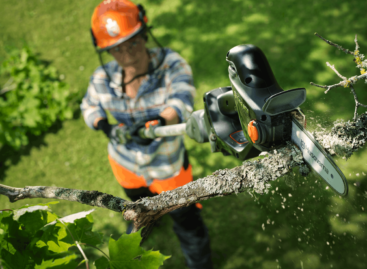Horticulture is a stable base
In March Kert-Ész Klub Hungary Association organised its 2nd Zsendülés Horticulture Conference in Kecskemét. József Rácz, the president of the association told that the aim of the conference was to give those working in horticulture first-hand information about the latest events and funding schemes in the sector. Zsolt Feldman, deputy state secretary of the Ministry of Agriculture told: horticulture constitutes a stable base of Hungarian agriculture and has the greatest potential as regards employment. The sector’s output was HUF 376.9 billion in 2015 – 15.4 percent of agricultural production.
Miklós Zsolt Kis, secretary of state for rural development in the Prime Minister’s Office spoke about four funding schemes available for horticultural development. In the 2014-2020 period the government’s main objective in the sector is job creation, increasing the competitiveness of enterprises and reducing the environmental impact of production. Attila István Simon, deputy state secretary in the Ministry for National Economy told that Hungary suffers from a lack of labour force and unemployment at the same time. In the 18-25 age group the unemployment rate is 14.5 percent and the government has launched several youth employment programmes to solve this problem.
Member of Parliament Sándor Farkas spoke about the whitening of the market, a result of introducing the Electronic Public Road Trade Control System (EKÁER) and the new ID for small-scale farmers. He opined that the sector should designate a so-called ‘flagship product’ – a fruit or vegetable that can be made most competitive – just like Polish growers did. Ferenc Ledó, the president of FruitVeb shared his view that everyone should only realise investments that can make profit without being subsidised. He added that without technological modernisation horticultural production won’t be profitable even in medium term.
Dr Mária Törőcsik, professor from the University of Pécs talked about how food consumption trends changed after the economic recession. Food now means much more to people than something that keeps them alive. Shoppers are now more conscious, making great efforts to buy food that can keep them healthy. ‘Health food’ is a rather wide category that includes both fully natural products and products coming from natural sources which have been modified some way, in order to make them beneficial to our health. People also want food consumption to give a real experience these days.
László Jordán, vice president of the National Food Chain Safety Office (NÉBIH) informed that last year they checked 1,684 export and 6,118 import consignments. NÉBIH analysed 10,638 items in domestic turnover and imposed HUF 61.3 million worth of fines. Ákos Kozák, managing director of GfK Hungary revealed that Hungarian households spent 29 percent of their FMCG budget on fresh products, baked goods, fruits, vegetables and fresh meat in 2015. Families spent more on fruits and vegetables but volume sales stayed put. The size of the average fruit basket reduced but there was an increase in the frequency of vegetable buying. Hungarians traditionally purchase fruits and vegetables in the marketplace.
Related news
The future of gardening: more and more work can be done with battery-powered machines
🎧 Hallgasd a cikket: Lejátszás Szünet Folytatás Leállítás Nyelv: Auto…
Read more >Related news
The GKI business climate index rose in February
🎧 Hallgasd a cikket: Lejátszás Szünet Folytatás Leállítás Nyelv: Auto…
Read more >Zsófia Bánhegyi is the marketing, communications and public relations director of HUN-REN
🎧 Hallgasd a cikket: Lejátszás Szünet Folytatás Leállítás Nyelv: Auto…
Read more >









